H.E. Dessima Williams – Special Adviser to the President of the 71st Session of the General Assembly on Implementing the Sustainable Development Goals and Youth Engagement at SDG Media Zone […]
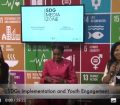

H.E. Dessima Williams – Special Adviser to the President of the 71st Session of the General Assembly on Implementing the Sustainable Development Goals and Youth Engagement at SDG Media Zone […]

Please check against delivery Opening Remarks delivered by H.E. Tomas Anker Christensen, Chef de Cabinet of H.E. Mr Peter Thomson, President of the 71st Session of the General Assembly, on behalf […]
On 13 December 2006, the United Nations General Assembly adopted a resolution that established the Convention on the Rights of Persons with Disabilities (CRPD).
The Convention’s aim is to “protect and ensure the full and equal enjoyment of all human rights and fundamental freedoms by all persons with disabilities, and to promote respect for their inherent dignity.”
Its main message is that persons with disabilities are entitled to the full spectrum of human rights and fundamental freedoms without discrimination. To that end, the Convention promotes the full participation of persons with disabilities in all spheres of life, challenging customs, stereotypes, prejudices, harmful practices and stigma relating to persons with disabilities.
In the 10 years since its adoption, the Convention has been one of the most quickly ratified of all the international human right treaties and, to date, more than 163 States and one regional organisation (the european Union) have ratified or acceded to the Convention. Yet huge challenges remain in achieving the full enjoyment of rights by all persons with disabilities.
The UN Committee on the Rights of Persons with Disabilities monitors how countries that have ratified the Convention are doing by reviewing them regularly and issuing concrete recommendations on how violations can be tackled and rights upheld. The CRPD Committee has received about 85 initial reports from States parties, working actively to monitor national progress, and provide guidance and advice on stronger ways of implementing the Convention.
The CRPD is the first human rights treaty ratified in the 21st century, with the highest number of signatories in history to a UN Convention on its opening day. Most notably, it is also the first internationally legally binding instrument to specifically address the situation of persons with disabilities at a global level in an effort to promote, respect and fulfil their rights. Since its adoption at the General Assembly in December 2006, the Convention, through its articles, has raised awareness about disability as both a human and a development issue. It marks a paradigm shift, where persons with disabilities are no longer viewed as objects of charity but as active members of society, in charge of their own lives, with free and informed consent. The CRPD is the chief instrument that consolidates the efforts made by the United Nations to promote the equal rights and inclusion of persons with disabilities in all spheres of society.
tbc
[youtube https://www.youtube.com/watch?v=sQuMh9N5cNQ&w=560&h=315]

This year’s Summit will take place 29th to 30th November at the Qatar National Convention Center, in Doha. The event will bring together more than 1,000 global leaders, including government officials and healthcare experts to tackle the world’s most pressing healthcare challenges.
United Nations Economic and Social Commission for Asia and the Pacific (ESCAP) resolution 72/6 ‘Committing to the implementation of the 2030 Agenda for Sustainable Development in Asia and the Pacific’ requests the Executive Secretary to “strengthen support to member States in their efforts to implement the 2030 Agenda in an integrated approach, inter alia, with analytical products, technical services and capacity-building initiatives through knowledge-sharing products and platforms, and to enhance data and statistical capacities”.
In addition, Member States, in the third session of the Asia-Pacific Forum on Sustainable Development (APFSD) highlighted how the 2030 Agenda provides an opportunity to shift away from “business as usual” and to more effectively address multi-sectoral challenges. More holistic approaches that integrate the social, economic and environmental dimensions of sustainable development were seen as indispensable to the achievement of the 2030 Agenda.
In response to this, ESCAP is holding a week dedicated to enhance understanding of the key challenges for effective implementation of the Sustainable Development Goals – ESCAP SDG Week. Over the course of five days, ESCAP SDG Week will facilitate dialogue amongst experts on challenges involved in effective implementation of the sustainable development agenda and tools and support available, including through ESCAP, to strengthen peer learning and capacity development to advance progress on the 2030 Agenda.
ESCAP SDG Week will make full use of already-planned Expert Group Meetings (EGMs) and events as described under the ESCAP’s programme of work for 2016-2017 by putting them under a comprehensive concept and integrated approach exploring how ESCAP might adapt policy formulation and capacity development to address the new needs of the 2030 Agenda for Sustainable Development.
This platform will be a unique opportunity to bring together stakeholders from government, academia, the international community, civil society and the private sector and provide them with: (1) an enabling environment for knowledge sharing and engaging in technical level discussions on different aspects of the 2030 Agenda for Sustainable Development and; (2) the opportunity to provide feedback on the support required from ESCAP and other development partners as they prepare to implement the 2030 Agenda for sustainable Development at the national level.
The 5-day event will address key aspects of the 2030 Agenda that were highlighted and discussed in the third session of the APFSD. Given their relevance and the need to foster technical expertise to respond effectively to the challenges of implementation, ESCAP SDG Week will focus on:
– The 2030 Agenda follow up and review process
– Means of implementation
– Support to countries with special needs
– Support implementation at the local level and urban governance
– Integrated approaches for SDG planning – the case of SDG 6
– Trade, investment and technology
– Gender
– Youth and the 2030 Agenda
– International Investment Agreements (IIAs)
– Macroeconomic Policies and sustainable development in the region
– Agricultural trade for sustainable development
Further to General Assembly resolution 70/197 of 22 December 2015, the Secretary-General will convene a Global Sustainable Transport Conference from 26 – 27 November 2016 in Ashgabat, Turkmenistan. The Conference will be held at the highest level and will bring together key stakeholders from Governments, United Nations system and other international organizations, the private sector, and civil society to engage in dialogue that emphasizes the integrated and crosscutting nature of sustainable transport. All modes of transport—road, rail, aviation and maritime— will be addressed as well as transport both in urban and rural areas, energy and transport, public transport, countries in special situations, road safety, and financing for sustainable transport, while looking at the same time how to find a new paradigm for transport sustainability.
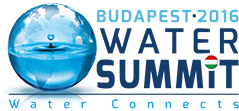
The Budapest Water Summit 2016 is organised by the Hungarian Government in cooperation with the World Water Council, under the patronage of János Áder, President of Hungary. The mission of the Summit aims that instead of conflicts and global risks water shall be the source of cooperation, peace and development for all the countries committed to sustainable development. To this end, participants of the Budapest Water Summit 2016 will lay down their proposed solutions for the relevant international bodies by adopting the „Budapest Statement 2016”.
The Budapest Water Summit 2016 – including parallel events (thematic forums and expo) – will be held between 28 and 30 November 2016 in Budapest, at Millenáris Park.
The Budapest Water Summit 2016 is particularly reliant on the Budapest Water Summit 2013, the 2030 Agenda for Sustainable Development adopted by UN Member States as well as on the success and results of Paris Climate Summit.
The Budapest Water Summit 2016 will be attended by, inter alia, experts, professionals and officials from UN specialized agencies of water, sanitation and sustainable water management, other relevant Hungarian and international organisations, governments as well as business and academic communities, who can contribute to the implementation of the global Sustainable Development Goals related to water.
The Budapest Water Summit 2016 will serve as a strategic platform to link political decision-makers closer to technology development, financing and public perceptions A further objective of the event is to give a momentum to the practical implementation of sustainable development goals adopted for the period of 2015 to 2030 and the Paris Climate Agreement within the UN 21st Climate Conference in terms of water management including the institutional framework reforms as necessary.
The Budapest Water Summit 2016 will be the first global conference that can summarize the results achieved since the Sustainable Development Goals were adopted and, in addition, can contribute to setting out tasks for the following 15 years.
The Budapest Water Summit 2016 will take place half way between two significant global events: the 2015 Daegu and the 2018 Brasilia World Water fora and will serve as an important milestone preparing the 2018 global water event as well as a follow- up the event in 2015.
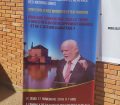
MEDIA ADVISORY President of the UN General Assembly to give lecture at Cadi Ayyad university UNITED NATIONS, New York, 13 November 2016 — The President of the United Nations […]
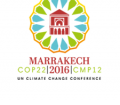
Statement by Ambassador Dessima Williams, Special Adviser on SDGs, on behalf of H.E. Mr Peter Thomson, President of the 71st Session of the General Assembly at GLOBAL CLIMATE ACTION – Oceans Action Day at […]
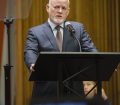
Briefing to Member States by the President of the General Assembly on SDG Implementation Strategy 8 November 2016 Excellencies, Distinguished delegates, Ladies and Gentlemen, When the historic […]

